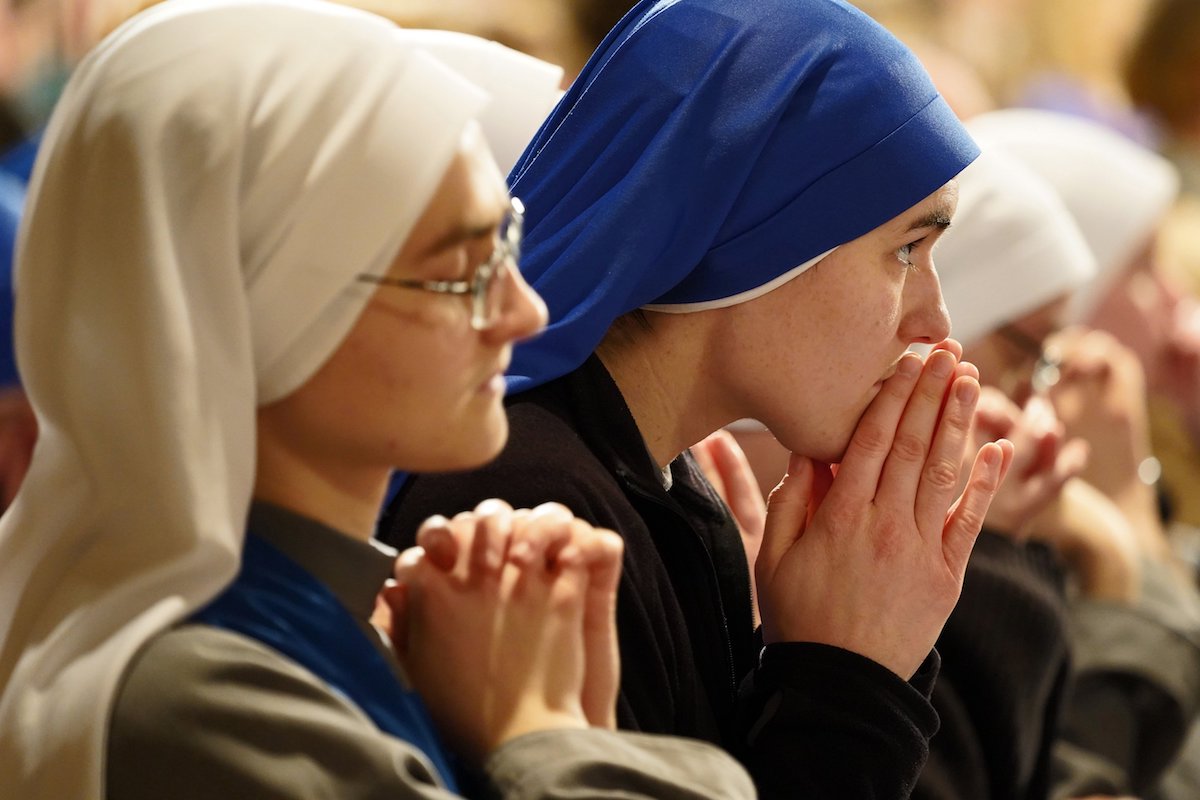VATICAN CITY (CNS) — Consecrated men and women need a solid foundation built on ongoing formation, a clear identity and the “rock” of God’s eternal love that sets them free, said a letter from the Congregation for Institutes of Consecrated Life and Societies of Apostolic Life.
“Consecrated men and women must reawaken in themselves, but above all in the men and women of our time, an attraction for what is beautiful and true” and, it added, “beautiful must be what we do and how we do it.”
The letter, “Witnesses to the Beauty of God,” was addressed to the world’s consecrated men and women to mark the 25th anniversary of the publication of St. John Paul II’s Apostolic Exhortation “Vita Consecrata.” The letter was released March 25, the Feast of the Annunciation of the Lord and signed by Cardinal João Braz de Aviz, congregation prefect, and Archbishop José Rodríguez Carballo, secretary.
They said in their letter that this apostolic exhortation from 1996 “should continue to be a point of reference in the coming years, together with the documents of the magisterium” and their own congregation.
“We are convinced that the exhortation can still nourish the creative fidelity of consecrated persons, the cornerstone of consecrated life in the third millennium,” it said.
Consecrated life is built on relationship: with God, in one’s community and in those one serves, it said. Salvation “comes through the lives of those who take charge of the other” and it comes with “communal holiness” of poor sinners “who daily share and offer each other mercy and understanding,” it said.
Consecrated life “does not oppose the values of the world and the universal thirst for happiness, but, on the contrary, reveals to all that being poor, chaste, and obedient has great humanizing power, is a true ecosystem of the human condition, gives meaning and balance to life, harmony, and freedom in relationships with things, it protects from abuse, creates fraternity, and offers beauty,” it said.
In particular, it said, the exhortation presents formation as a process that helps consecrated men and women “have the same feelings, emotions, sentiments, affections, desires, tastes, objective criteria, dreams, expectations and passions … of the son-servant-lamb” of God.
Christians believe in a sensitive God who hears the cries of the oppressed and suffering, and “we want to believe that consecrated life, with its many charisms, is the very expression of this sensitivity,” it said.
Formation, then, must continue for a lifetime, integrate the spiritual and anthropological dimensions, and be “built on the rock of eternal love that sets one free, forming integrated persons who have learned to evangelize their feelings, to love God with a human heart, and to love humanity with a divine heart,” it said.







